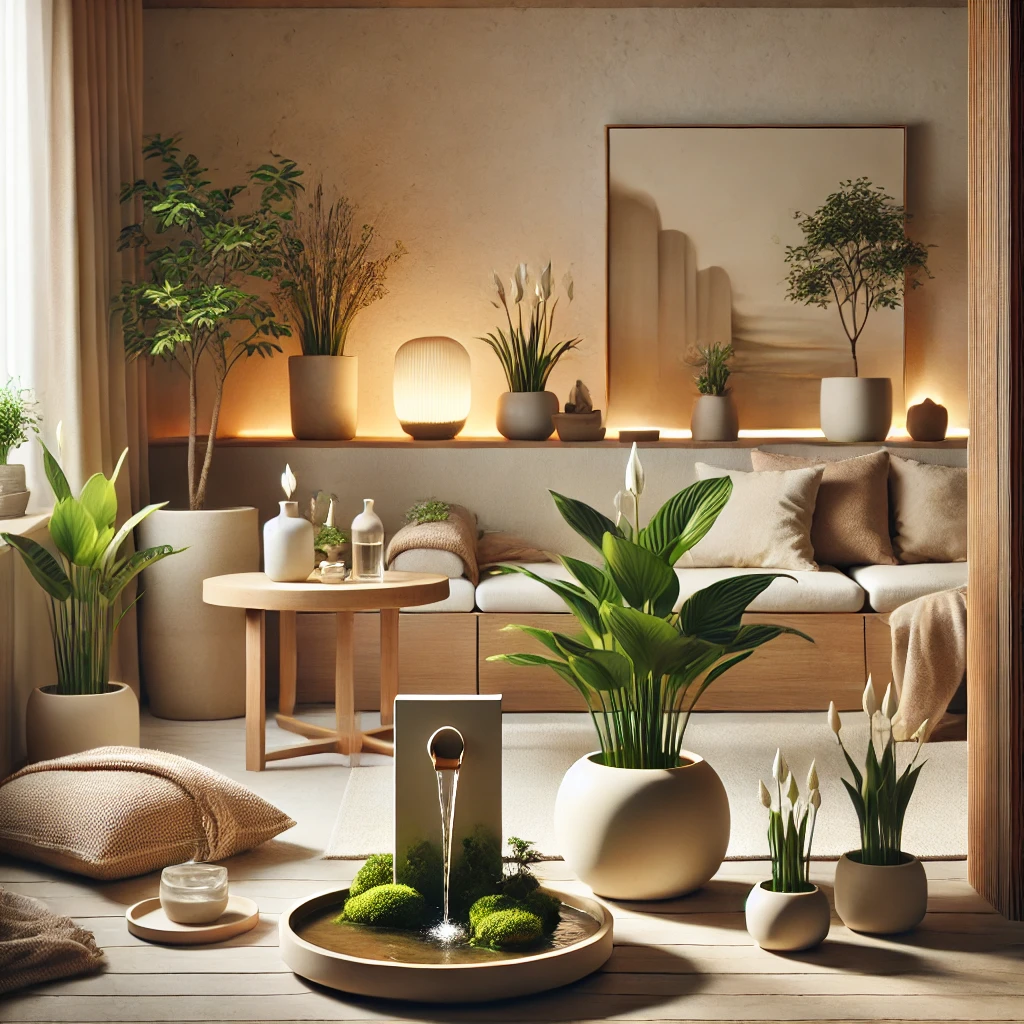Stress has become an unwelcome guest in many households, but with the ancient art of Feng Shui, you can create a serene environment that nurtures peace and harmony. Feng Shui, which translates to “wind” and “water,” is a Chinese practice that focuses on arranging your living space to optimize the flow of energy, or “Chi.” By incorporating Feng Shui principles, you can transform your home into a stress-free sanctuary.
Understanding the Basics of Feng Shui
Before diving into the specific steps, it’s crucial to understand the core concepts of Feng Shui:
- Chi (Energy Flow): The essence of Feng Shui lies in balancing the energy in your space to support well-being and positivity.
- Five Elements: Wood, Fire, Earth, Metal, and Water are the five elements that represent different energies and must be balanced to maintain harmony.
- Bagua Map: This is a Feng Shui tool used to divide your home into nine sections, each associated with a specific life area such as health, wealth, and relationships.
- Yin and Yang: The balance of opposing forces—calm (Yin) and dynamic (Yang)—is essential for a harmonious environment.
Declutter Your Space
A cluttered space leads to a cluttered mind. Start by decluttering your home to improve the flow of Chi:
- Start Small: Begin with one area, such as your bedroom or living room.
- Donate or Discard: Let go of items that no longer serve a purpose.
- Organize Smartly: Use storage solutions to keep your space tidy.
Decluttering allows energy to circulate freely, reducing feelings of overwhelm and stress.
Bring Nature Indoors
Incorporating natural elements can significantly reduce stress. Use plants, water features, and natural materials to create a calming atmosphere:
- Add Greenery: Plants like peace lilies, snake plants, and bamboo are excellent for purifying air and enhancing Chi.
- Water Features: A small fountain or aquarium can introduce the water element, symbolizing abundance and tranquility.
- Natural Materials: Opt for furniture made of wood, cotton fabrics, and stone decor to ground your space.
Optimize Bedroom Feng Shui
The bedroom is where you recharge, making it a priority for stress reduction:
- Bed Placement: Position your bed diagonally opposite the door but not in direct line with it to maintain a sense of security.
- Soothing Colors: Use soft, neutral colors like pastel blues, greens, or earth tones.
- Remove Electronics: Keep gadgets like TVs and smartphones out of the bedroom to reduce electromagnetic stress.
Use the Power of Colors
Colors have a profound psychological effect and play a significant role in Feng Shui:
- Blue and Green: These colors evoke calmness and growth.
- Earth Tones: Beige and taupe create a grounded and secure environment.
- Avoid Red: While energizing, red can be overwhelming and should be used sparingly.
Arrange Furniture for Flow
Furniture placement is critical in Feng Shui to allow energy to flow smoothly:
- Clear Pathways: Avoid blocking doorways and pathways with furniture.
- Rounded Edges: Use furniture with rounded edges to soften the energy.
- Anchor Spaces: Place rugs or area mats to define specific areas and create a sense of grounding.
Let in Natural Light
Natural light is a vital source of positive energy. Here’s how to enhance it:
- Clean Windows: Dirty windows can block light and energy.
- Sheer Curtains: Use light, airy curtains to maximize sunlight.
- Mirrors: Strategically place mirrors to reflect light into darker areas.
Balance the Five Elements
Each room should incorporate a balance of the five Feng Shui elements:
- Wood: Add plants or wooden furniture.
- Fire: Use candles or warm lighting.
- Earth: Incorporate ceramics or terracotta pots.
- Metal: Use metallic decor like frames or sculptures.
- Water: Include water features or blue accents.
Create a Tranquil Entryway
The entryway is the first point of contact for energy entering your home. Keep it welcoming and stress-free:
- Declutter: Remove unnecessary items like shoes or bags.
- Lighting: Use warm, inviting lights.
- Decor: Place a small plant or artwork to uplift the mood.
Incorporate Aromatherapy
Scents have a direct impact on stress levels. Use natural essential oils like lavender, chamomile, or sandalwood to promote relaxation. Diffusers, scented candles, or incense sticks can enhance the ambiance.
Enhance Air Quality
Poor air quality contributes to stress and fatigue. Ensure proper ventilation and introduce air-purifying plants to maintain a fresh environment.
Personalize Your Space
Your home should reflect your personality and preferences. Add personal touches like family photos, cherished mementos, or artwork to make the space uniquely yours.
Maintain a Daily Feng Shui Practice
Consistency is key. Make small daily efforts to maintain the balance in your home:
- Morning Routine: Open windows to refresh the energy.
- Night Routine: Clear away clutter and set intentions for the next day.
Conclusion
By applying Feng Shui principles, you can reduce stress and cultivate a harmonious living environment. From decluttering your space to balancing the five elements, these small yet impactful changes can make a significant difference. Remember, a stress-free home leads to a stress-free mind.

